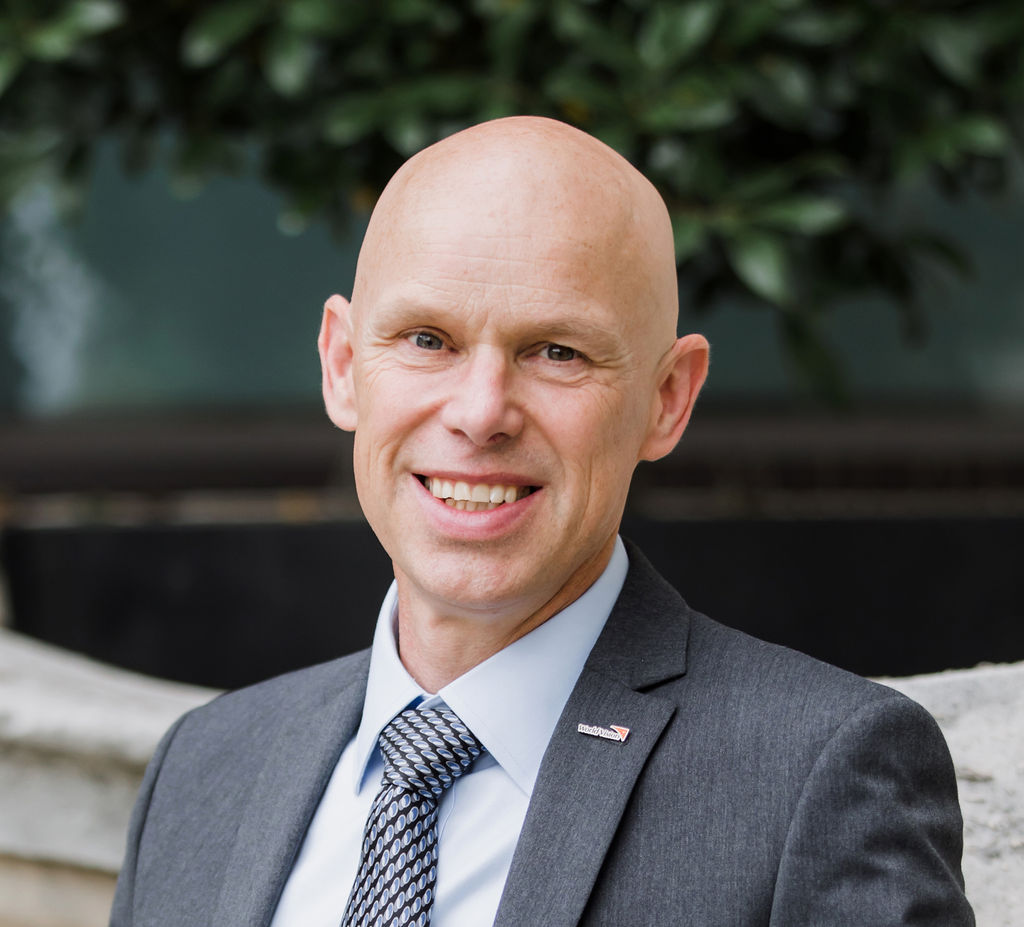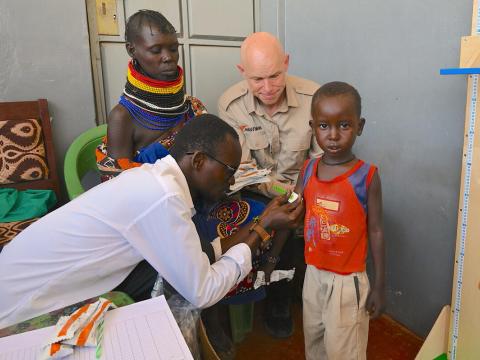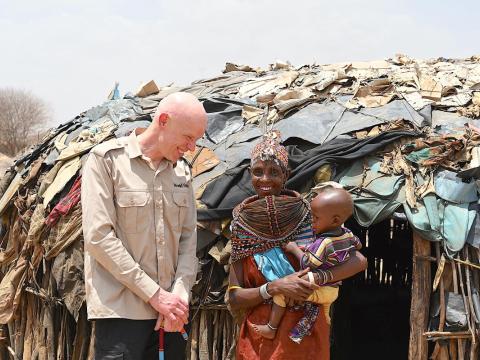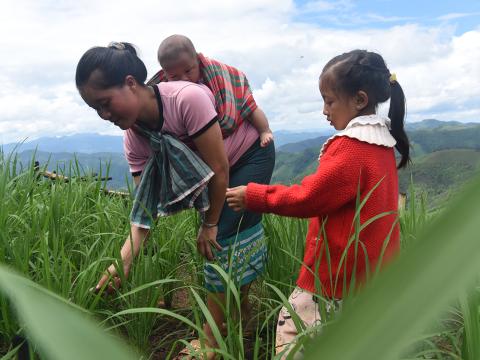
To fight hunger, balance the scales for women
Hunger hurts women far more than it does men. And hunger is most likely to attack women first. This disproportionate impact on women is a mirror of what we see in societies, where women face obstacles to living out their potential.
The facts are alarming: food insecurity is more prevalent among women than men in every region of the world. Sixty percent of the 690 million people facing food insecurity are female, and 69% of females have at least one micronutrient deficiency.
And yet, the greatest victims of hunger are also the world’s best solution to hunger. I recently saw for myself how a mother in Cambodia with a subsistence income transformed her life through an agriculture co-operative. She went on to change the lives of others in her community.

The production and consumption of food are key areas in which women face inequality that increases their vulnerability to hunger.
For example, women generally have access to fewer resources than men, and they have limited agency to change their circumstances. They own less land despite making up more than half of the world’s agricultural workers. And they often have less productive resources such as access to credit and inclusion in decision-making processes.
The consumption of food is largely driven by patriarchal practices and norms. A weaker bargaining position means women often eat last, and least. Due to income inequality, women also have fewer means to purchase food.
As hunger and desperation set in for a family, community and nation, the consequences for women and children become increasingly more dire. Women will prioritise their children over themselves, leading them to eat less and shift to extreme coping measures that increase their exposure to violence.
Hunger is particularly detrimental during pregnancy. At a time when they need even more nutrients and access to prenatal care, maternal malnutrition can lead to birth complications as well as childhood stunting and death.
Girls may leave school and get married early when a family goes hungry. They may engage in dangerous work or be forced into unsafe situations where they are exposed to sexual abuse and violence.
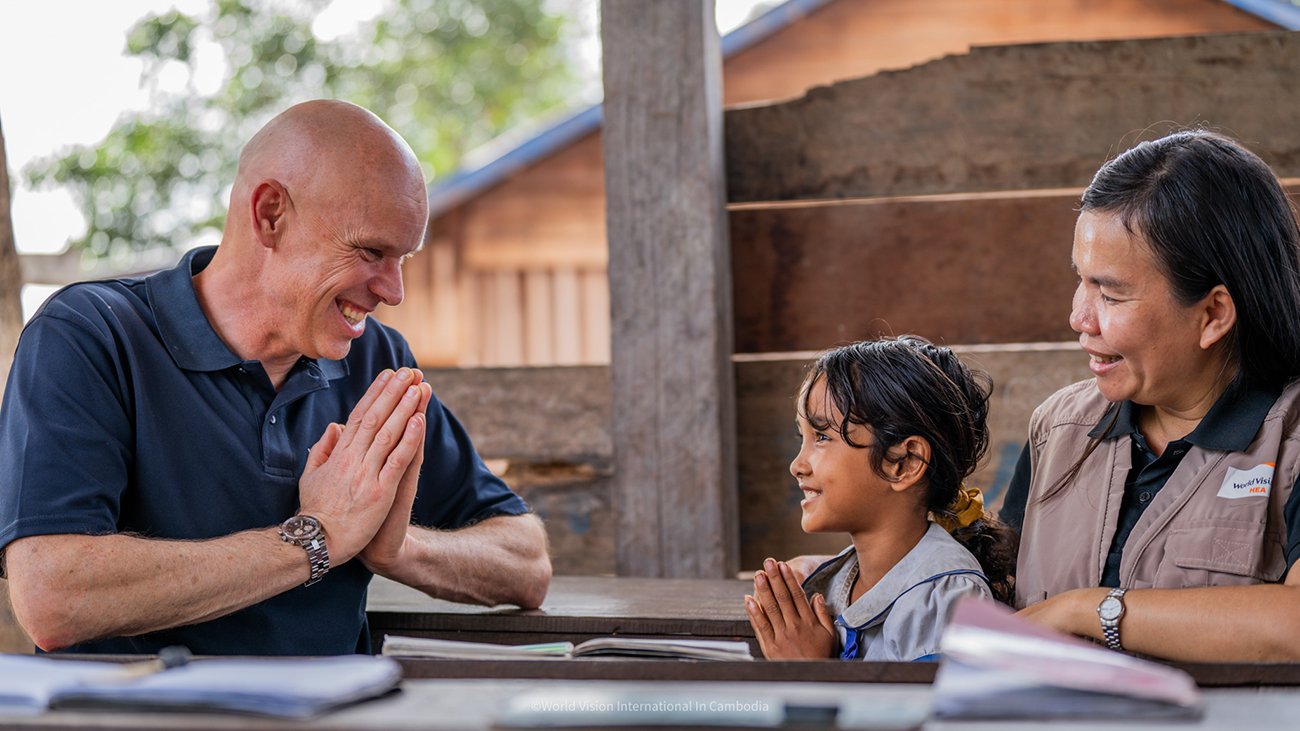
The true (and untold) cost of hunger to girls and women is horrifying and it should prompt us to act with the utmost urgency.
I am determined to bring high-level attention to the hunger challenges that women and girls face. We must first understand the unique vulnerabilities and capabilities of women, and then we need to implement transformative approaches at all levels.
Beginning in the home, we must promote equality in relationships. Women should co-manage household income, which will leverage their power domestically. Their daughters should continue their education because it can boost their future earning potential. World Vision’s Celebrating Families and integrated education programming play an important role here.
In agriculture, we should ensure women receive equitable seeds, tools, knowledge and training to have productive farms. This could decrease the number of people living in hunger and poverty by 100-150 million. World Vision’s THRIVE programme incorporates a biblically-empowered worldview and empowers women with farming techniques.

Through World Vision’s partnership with VisionFund, women can access loans to become entrepreneurs. The Village Savings and Loans Associations that we mobilise equip them to save their money, and typically women reinvest 90% of their income back into their families while men only reinvest 30-40%.
Remember the Cambodian mother I mentioned? World Vision helped her join a savings group, connected her with better quality produce to sell and gave her access to customers. This removed the middle man and quadrupled her income. We helped her establish an agriculture co-operative, and now she is setting up more of them that are run by women. She was recently appointed the local mayor!
When women are represented in governing bodies, longer-term changes can be made at the policy level.
I call upon other civil society agencies and governments to join World Vision in putting women at the centre of community development initiatives to tackle the hunger crisis. I am more than hopeful that we can make investments in these areas to make a lasting difference for the well-being of women and children.
Join Andrew and World Vision in the fight against hunger and malnutrition through our new ENOUGH campaign. It will target adolescent girls’ nutrition needs and address negative coping strategies, such as child marriage. Learn more.
Andrew Morley is World Vision International's President and CEO
